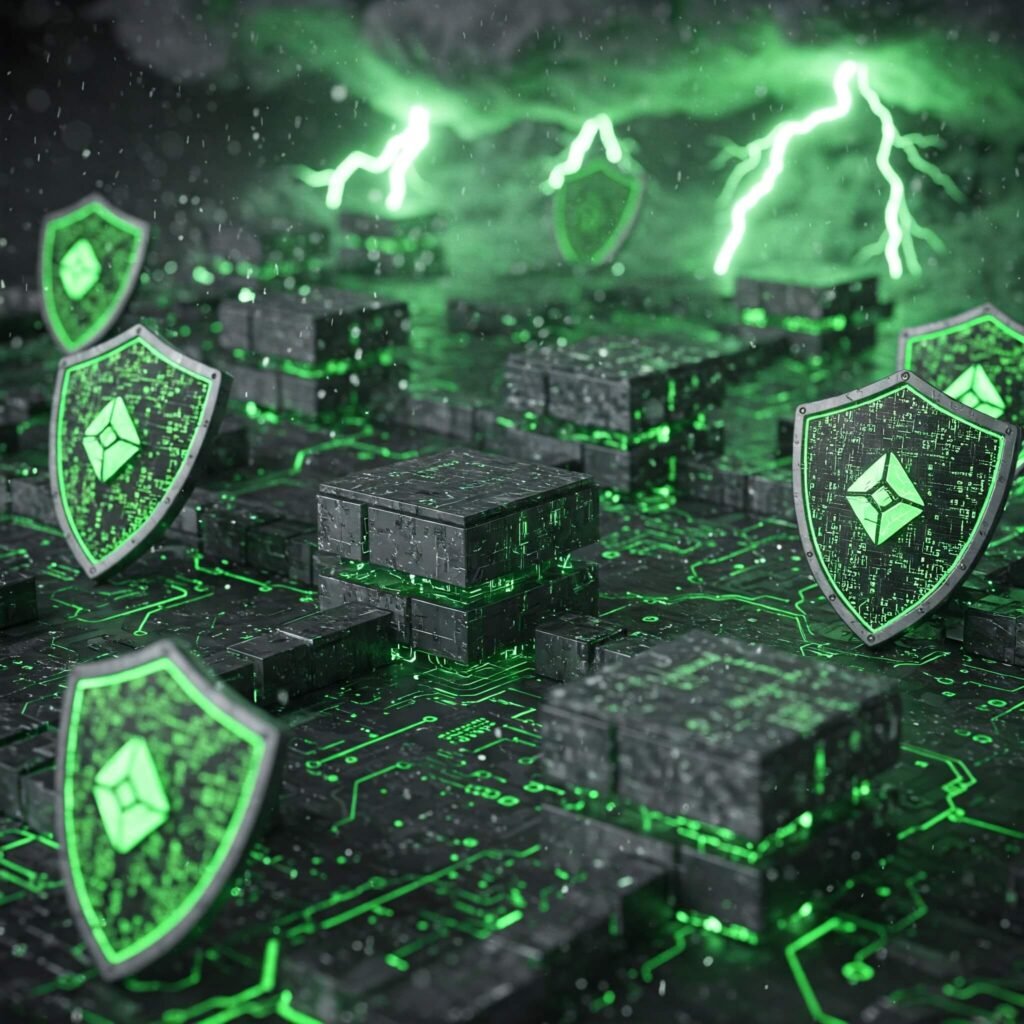Will Blockchain Survive the Crypto Crash? A Look at 2025
Will blockchain survive the crypto crash? As cryptocurrency markets face volatility in 2025, with Bitcoin and Ethereum prices fluctuating, many wonder if blockchain—the technology behind crypto—can weather the storm. Blockchain is more than just digital currencies; its decentralized, secure ledger powers industries like supply chains, healthcare, and finance. This guide explores blockchain’s resilience, real-world applications, and actionable steps to understand its future, written in a friendly tone for tech enthusiasts and beginners alike.
What Is Blockchain and Why It’s Tied to Crypto?
Will blockchain survive the crypto crash if cryptocurrencies falter? To answer, let’s clarify what blockchain is. Blockchain is a distributed ledger that records transactions across multiple computers, ensuring security and transparency without a central authority. It gained fame through Bitcoin, which uses blockchain to track crypto transactions.
Why Blockchain Is Linked to Crypto:
- Origin: Blockchain was created for Bitcoin to enable secure, decentralized payments.
- Public Perception: Crypto’s popularity often overshadows blockchain’s broader uses.
- Market Impact: Crypto crashes raise doubts about blockchain’s viability.
However, blockchain’s applications extend far beyond crypto, making it resilient to market swings.

Why Blockchain Is More Than Crypto
Will blockchain survive the crypto crash when it’s not just about crypto? Blockchain’s versatility ensures its relevance across industries, even if cryptocurrencies struggle.
Non-Crypto Applications:
- Supply Chain: Walmart’s Food Trust blockchain tracks produce, ensuring transparency from farm to table.
- Healthcare: Estonia’s e-Health system secures 1 million patient records on blockchain.
- Finance: JPMorgan’s Onyx platform processes $1 trillion daily using blockchain for secure transactions.
Statista projects the global blockchain market to reach $39 billion by 2025, driven by non-crypto uses, proving blockchain’s staying power.
Outbound Link: Statista Blockchain Market Report for market insights.
How Blockchain Weathers Crypto Volatility
Will blockchain survive the crypto crash despite market turbulence? Blockchain’s decentralized design and growing adoption make it robust against crypto’s ups and downs.
Reasons for Resilience:
- Diverse Use Cases: Blockchain’s applications in healthcare, finance, and logistics don’t rely on crypto prices.
- Enterprise Adoption: Companies like IBM, Microsoft, and Maersk invest heavily in blockchain solutions.
- Innovation: Advances like Ethereum 2.0’s energy-efficient consensus enhance blockchain’s appeal.
For example, IBM’s TradeLens platform, used by Maersk, streamlines global shipping with blockchain, unaffected by Bitcoin’s price swings.

Challenges Blockchain Faces Amid Crypto Crashes
Will blockchain survive the crypto crash without hurdles? While resilient, blockchain faces challenges tied to crypto’s volatility.
Key Challenges:
- Public Misconception: Many equate blockchain with crypto, assuming a crash dooms both.
- Funding Risks: Crypto downturns may reduce investment in blockchain startups.
- Regulatory Uncertainty: Governments tightening crypto laws could indirectly affect blockchain projects.
Solutions like public education and diversified funding (e.g., enterprise backing) are helping blockchain endure.
Outbound Link: IBM Blockchain Solutions for enterprise adoption insights.
The Future of Blockchain Post-Crypto Crash
Will blockchain survive the crypto crash in the long term? Experts predict a bright future as blockchain decouples from crypto’s volatility. By 2025, Gartner forecasts 20% of top global companies will use blockchain for security and efficiency, regardless of crypto markets.
Future Trends:
- Hybrid Blockchains: Combining public and private ledgers for flexibility, as seen in IBM’s Hyperledger.
- Smart Contracts: Ethereum’s contracts automate processes, like insurance payouts, without crypto reliance.
- Digital Identity: Microsoft’s ION platform uses blockchain for secure, non-crypto IDs.
Blockchain’s role in voting systems, like Sierra Leone’s 2018 pilot, shows its potential to transform trust-based systems.

How to Engage with Blockchain in 2025
Will blockchain survive the crypto crash, and how can you be part of it? Blockchain’s future is accessible to everyone, not just crypto investors. Here’s how to get involved:
Actionable Steps:
- Learn the Basics: Take free courses on Coursera or IBM Blockchain.
- Explore Tools: Experiment with Ethereum’s Remix for smart contracts or Hyperledger for enterprise solutions.
- Join Communities: Engage on Reddit’s r/Blockchain or X for insights.
- Stay Informed: Follow CoinDesk or Blockchain News for 2025 trends beyond crypto.
Businesses should assess blockchain for supply chains or data security, as Walmart and JPMorgan have done.
Outbound Link: CoinDesk for blockchain news.
Conclusion: Will Blockchain Survive the Crypto Crash?
Will blockchain survive the crypto crash? Absolutely. Blockchain’s decentralized, secure technology powers industries far beyond cryptocurrencies, from healthcare to finance. While crypto volatility poses challenges, blockchain’s diverse applications and enterprise adoption ensure its longevity. Start exploring blockchain today to be part of its resilient future.
































